Why does your thyroid become sluggish? Or overactive? What nutrients am I talking about? You all understand that I believe a supplement program should remain simple. Please rest assured I am going to empower you with ideas for foods grown on fertile soils (not fertilized) and animals who are raised in a humane way (and I just found an amazing local resource out of Homer—they deliver biweekly to your home in Anchorage. Check them out at
Your thyroid has a very heavy demand for nutrients especially minerals and B vitamins
Nutrient insufficiency—and inflammation—are the sole reasons for thyroid (and adrenal and liver functional insufficiencies, and gut—everything is connected to everything).
After over decades of evaluating basic labs for my clients, thyroid patients are deficient in MANY of these nutrients whether they realize it or not. Especially vitamin B12, prohormone vitamin D, zinc, selenium, Vitamin A and E, I’ve lost count. BUT often not iodine.
What, not iodine? Well, 90 percent of the U.S. population over-consumes salt and usually it is iodized whether you need it or not. Do you need more iodine? Only if you have a deficiency. In fact, too much iodine can cause thyroid trouble.
Why are so many patients deficient in these nutrients? It boils down to 4 big issues:
#1. Crops grown on “get big or get out” especially under Secretary of Agriculture Earl Butz during the 1970’s, yet it actually started with subsidies for specific crops and pork during the 1930’s—I digress… sorry… Even with a healthy whole-food-based diet, it’s now incredibly difficult to get the variety of vitamins and nutrients that your thyroid needs due to depleted soils. Science has repeatedly shown us that our food is much less nutritious than it was even 20 years ago.
#2. If you have an under or over-active thyroid, you need higher doses of certain ingredients compared to the regular population. Higher doses of B12, zinc, selenium, and antioxidants like Vitamin A, vitamin C, and vitamin E. Your needs are just not the same as theirs which is why standard multivitamins don’t work well for thyroid patients.
And never forget Vitamin D. Here in Alaska, we don’t make D from sunshine excepting perhaps 2 weeks on either side of June solstice. The sun has to be above 60 degrees in the sky and doesn’t penetrate through sunscreen or clothing to convert cholesterol into preliminary forms of Vitamin D which then is biochemically converted by your kidneys and then your liver to support more functions than you want me to list, including immune system and hormone balancing—and especially thyroid.
#3. Stress rapidly depletes nutrients. Stress depletes important nutrients that your thyroid needs especially magnesium, B vitamins, Vitamin D, and zinc. Where do these sources of stress come from? Body-mind-spirit—body can be infections (even low grade), food intolerances (even low grade), chemical or metal toxicity, allergies. This is where your adrenal glands come in: they coordinate the entirety of your stress response. If your adrenal glands are off; your thyroid, liver and likely others will be also.
#4. Thyroid patients struggle with the absorption of nutrients due to thyroid-related gut issues. To make matters worse, thyroid patients are more likely to struggle with issues such as low stomach acid, intestinal dysbiosis, and leaky gut. Each one of these conditions makes absorbing nutrients from your diet even more difficult.
Find and Fix What’s Really Wrong
Please don’t run to the vitamin shop. Let’s get you checked using Nutrition Response Testing to see what your body actually needs. Save money and take fewer supplements. Possibilities:
- Bioavailable Calcium (all plants)
- Bioavailable Magnesium (all plants)
- Bioavailable vitamin D
PS. The above MUST be taken with a healthy fat to be absorbed
- Potassium
- Vitamin A (consider yellow-orange vegetables and any greens)
- Vitamin C (not from oranges, lemons and lime are OK, you get more from well-grown vegetables)
- Vitamin E (seeds and greens)
- Vitamin D (this is the ONE supplement I recommend if you are eating a whole foods diet high in plants and healthy animal or fish meat)
- Zinc (mostly seafood, seeds, and legumes)
- Selenium (brazil nuts, seafood, poultry, organ meats, mushrooms)
- Vitamins B—especially B6 and B12 for digestion and energy production (B12 is only in animal products—you need ALL the B vitamins to produce energy. The rest of the 16 B vitamins can be obtained from a mix of plants and animal meats)
These nutrients support estrogen metabolism, adrenal/cortisol levels, liver function, direct thyroid hormone production, broader inflammation support, and thyroid gland inflammation.
Grab the Standard Process Nutrient Source list here
And please eat the rainbow of foods for your organ health
Grab my free Rainbow Foods for Organs handout here
In Health, Marie
References
Davis DR, Epp MD, Riordan HD. (2004) Changes in USDA food composition data for 43 garden crops, 1950 to 1999. J Am Coll Nutr. Dec;23(6):669-82.
Oregon State University. (2018) Micronutrient inadequacies in the U.S. population: An Overview.

Leave a Reply
You must be logged in to post a comment.